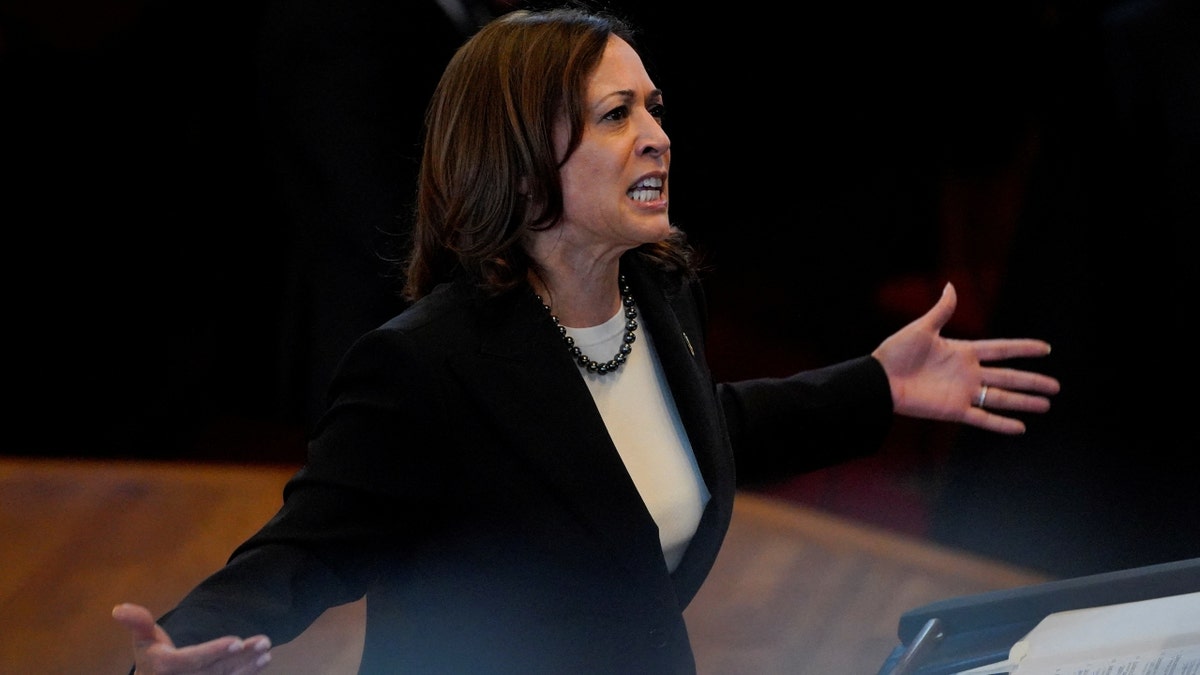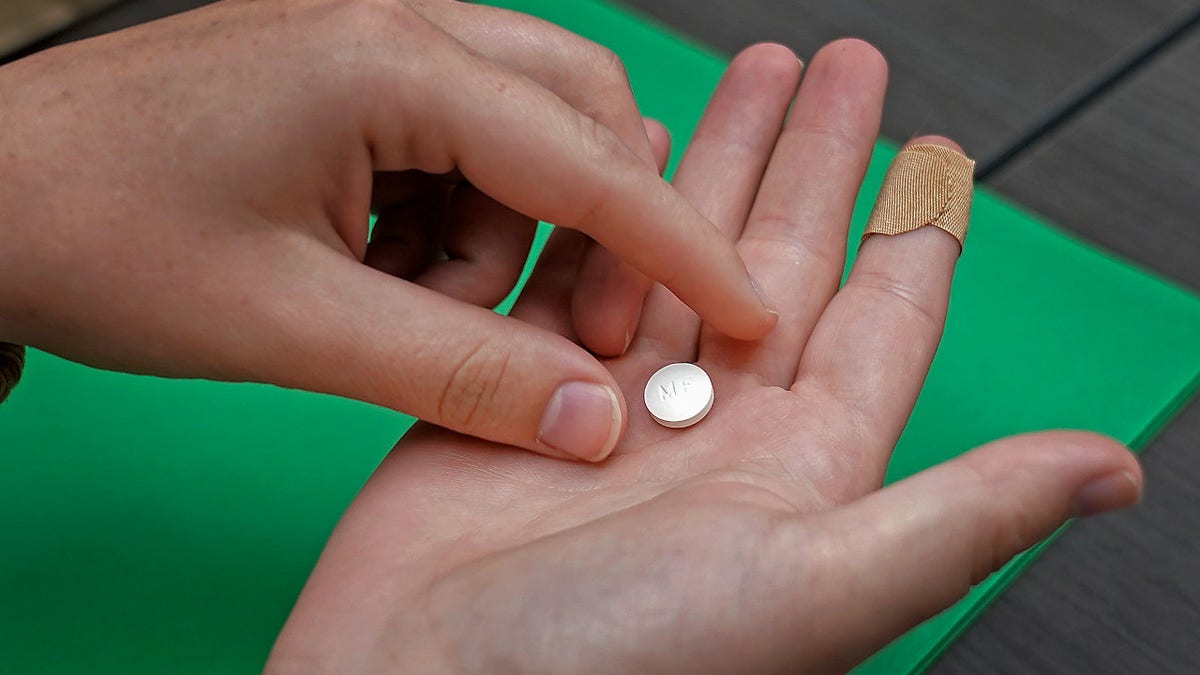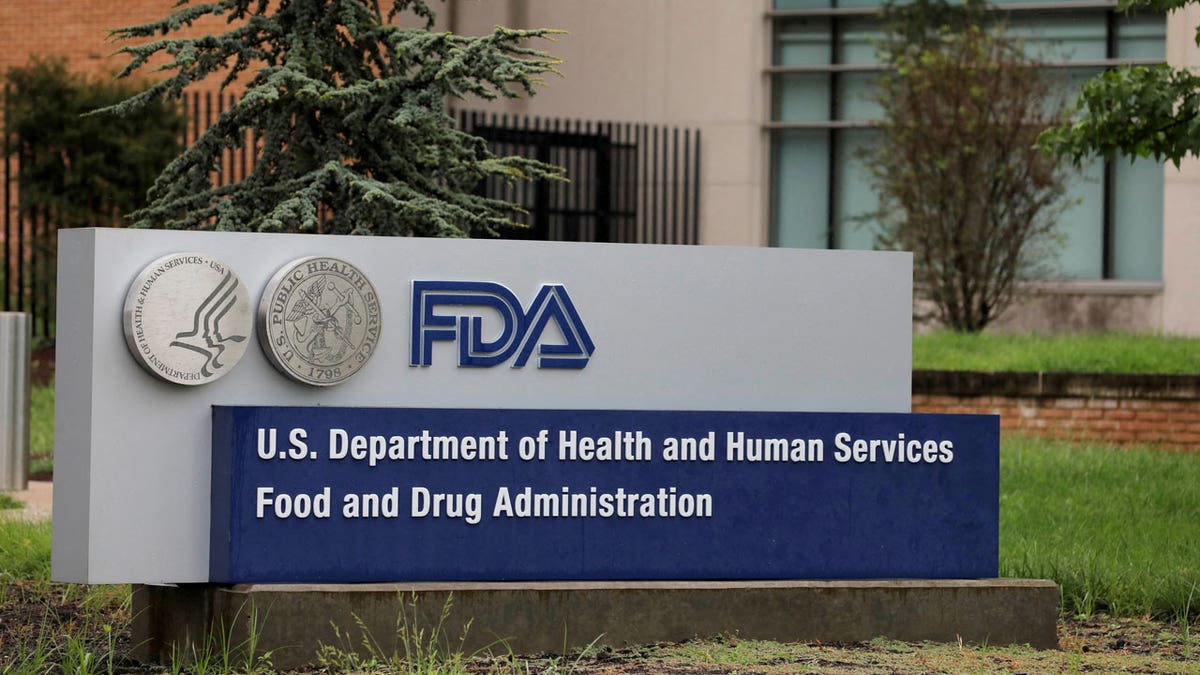Supreme Court preserves full access to mifepristone
Former Deputy Assistant Attorney General John Yoo discusses the Supreme Court ruling regarding the abortion pill mifepristone on "Fox News @ Night."
Vice President Kamala Harris mistakenly said last week that a government agency called the "Federal Drug Administration" approved the abortion pill mifepristone 20 years ago.
While the Federal Drug Administration may seem to be the likely breakdown of the acronym for FDA, the correct agency is the Food and Drug Administration (FDA).

Vice President Kamala Harris mistakenly said last week that a government agency called the "Federal Drug Administration" approved the abortion pill mifepristone 20 years ago. (Reuters / Cheney Orr / File)
Harris sat down for an interview with Noticias Telemundo’s Vanessa Hauc, which aired Friday evening, where the vice president spoke about abortion and the changes taking place in the U.S.
SUPREME COURT PRESERVES FULL ACCESS TO MEDICAL ABORTION PILL MIFEPRISTONE
"Let’s set the scene. Many months ago, the highest court in our land, the United States Supreme Court, took a constitutional right that had been recognized from the people of America – from the women of America – which is the right to make [a] decision about your own body and your own reproductive health," Harris said. "The government should not be telling that woman what to do with her body. This evokes, in my mind, very fundamental rights, including the right to freedom for each individual about what is in their best interest."
The vice president then turned her attention to mifepristone, an abortion pill approved by the Food and Drug Administration in 2000.

A case against the FDA’s approval of mifepristone challenges not the pill directly but whether the FDA acted appropriately when it approved the drug more than 20 years ago. (AP Photo / Charlie Riedel / File)
A case challenging the FDA’s approval of the drug, which was brought on by pro-life doctors and medical groups, challenges not the pill directly but whether the FDA acted appropriately when it approved the drug more than 20 years ago.
SUPREME COURT PUTS OFF ANY DECISION ON ACCESS TO MEDICAL ABORTION PILL MIFEPRISTONE UNTIL FRIDAY
"On the mifepristone issue, it’s politicians finding a court, targeting a specific court that they thought would be helpful to them, to take a medication off the market, which was approved 20 years ago by the Federal Drug Administration," Harris said.
She then asked anyone to look into their medical cabinet and look at any drug in there that was prescribed by a doctor.
Harris said any of the drugs prescribed, whether to help with pain or extend a person’s quality of life, was FDA approved.
OREGON SECURES 3-YEAR SUPPLY OF ABORTION DRUG MIFEPRISTONE
"Arguably, what they’re doing with mifepristone could happen to any one of those drugs in your medicine cabinet," she said.
On Friday, the same day the interview with Harris aired, the Supreme Court ruled that full access to the abortion pill could continue as the lawsuit works its way through the lower federal courts.

FDA headquarters in White Oak, Maryland, on Aug. 29, 2020. (Reuters / Andrew Kelly / File)
The case reached the Supreme Court after Trump-appointed U.S. District Judge Matthew J. Kacsmaryk issued a ruling that sided with pro-life groups by halting the FDA approval of mifepristone.
Kacsmaryk’s order was partially overturned by the 5th U.S. Circuit of Appears, but the appeals court preserved restrictions that made the drug available only to be dispensed up to seven weeks, not 10, and not by mail.
The Justice Department argued that allowing restrictions on the drug to remain in place would create chaos.
Complicating things, a federal judge in Washington ordered the FDA to preserve access to mifepristone under the current rules in response to a separate lawsuit brought by 17 Democrat-led states and the District of Columbia.
Mifepristone is taken with misoprostol in a two-drug regimen that first blocks hormones needed to keep an unborn baby alive and then causes cramps and contractions to expel the dead fetus from the mother's womb.
CLICK HERE FOR THE FOX NEWS APP
The drug is 97% effective in terminating early pregnancy, though approximately 3% of women who take it will "require surgical intervention for ongoing pregnancy, heavy bleeding, incomplete expulsion or other reasons such as patient request," according to the manufacturer.
Christ Pandolfo, Adam Sabes, Shannon Bream and Bill Mears of Fox News contributed to this report.






